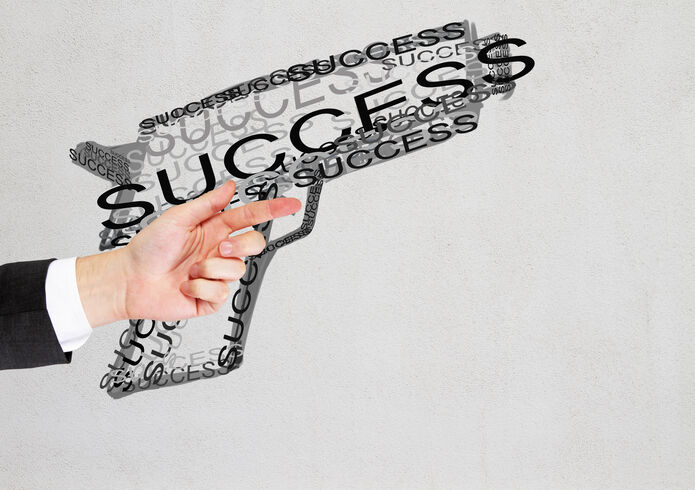Success is not just a product of external circumstances but a reflection of one’s internal landscape. The role of ego in success is crucial and affects how we take challenges, opportunities, and our potential. Ego when blanched and understood properly, can be a powerful tool in the journey toward achievement. However, if left unchecked, it can become a hurdle to progress, leading to self-doubt and missed chances.
In this blog, we are going to explore the role of ego in success, how mastering the inner voice can lead to self-mastery, and the importance of ego management in personal development.
Understanding the Role of Ego in Success
The role of ego in success has many sides. On one hand, it can drive ambition, push people to do their best, and set high standards for themselves. It is often the force behind the desire to accomplish, to be known, and to leave a mark in the world.
On the other hand, increased ego can lead to arrogance, an inability to accept criticism, and not accepting to acknowledge the contributions of others. This is where the importance of ego management comes into play. To have the positive aspects of ego while reducing its potential downsides is a delicate balance that is important for long-term success.
Ego in Success: The Double-Edged Sword
Ego in success can be likened to a double-edged sword. When used wisely, it can break doubts and fears, propelling people toward their goals. However, if wielded carelessly, it can cause harm and lead to issues, burnout, and loss of focus.
The role of ego in success is not about removing it but understanding its influence and learning how to manage it effectively. By recognizing when ego is helping and when it causes hindrance, people can navigate the complexities of their personal and professional lives with greater clarity and purpose.

The Inner Voice: Your Guide or Your Nemesis?
The inner voice, often shaped by the ego, plays a major role in determining one’s mindset and approach to challenges. This voice can either be a guide, offering motivation and encouragement, or a nemesis, fueling self-doubt and negativity. The role of ego in success is bound to how one takes and responds to this inner dialogue.
Developing self-mastery involves tuning into this voice, discerning its messages, and consciously choosing thoughts that align with one’s goals and values. In this way, the inner voice becomes a tool for growth rather than a source of limitation.
Self-Mastery and Success Psychology
Self-mastery is the foundation of success psychology. It includes understanding the role of ego in success and learning to manage one’s thoughts, emotions, and behaviors in a way that supports long-term success.
It requires a deep understanding of the inner voice and the ability to control the ego’s influence on decision-making. By having self-discipline, people can align their actions with their intentions, creating a road to success that is grounded in self-awareness and personal development.
Ego Management: The Key to Sustainable Success
Ego management is important for sustainable success. It includes recognizing the role of ego in success and implementing strategies to keep it in check. This might involve practices like mindfulness, self-reflection, and taking feedback from a close member.
The goal of ego management is not to suppress the ego but to integrate it into a broader framework of personal development. By doing so, people can maintain a healthy sense of self-worth while remaining open to growth and learning.
The Power of Visualization in Ego Management
It is a powerful thing for the management of ego and success. By imagining successful outcomes and the steps required to achieve them, people can align their inner voice with their external goals. The role of ego in success is improved when visualization is used to create a positive self-perception and motivation.
This helps to stop the inner critic, allowing the people to focus on their strengths and abilities, thereby increasing the likelihood of achieving their desired outcome.
The Role of Self-Discipline in Managing Ego
Self-discipline plays a major role in managing the ego. Without self-discipline, the ego can easily be out of control, leading to bad decisions and actions that are not aligned with one’s long-term goals. The role of ego in success is closely linked to the ability to exercise self-discipline, particularly in moments of temptation or frustration. By cultivating self-discipline, individuals can keep their ego in check, ensuring that it serves their higher purpose rather than undermining it.
Creating Your Luck Through Ego Management
Creating luck is often about being prepared for opportunities when they arise. However, the role of ego in success cannot be overlooked in this process. An unchecked ego might lead to missed opportunities due to overconfidence or a refusal to consider alternatives.
On the other hand, an ego that is well-managed can enhance one’s ability to create luck by remaining open to new possibilities and being willing to take calculated risks. In this way, the role of ego in success is integral to the concept of creating luck and seizing opportunities.
The Hero’s Journey: Overcoming Ego for Greater Success
The Hero’s Journey, a concept often used in personal development, involves overcoming significant challenges and, in many cases, confronting and managing the ego.
The role of ego in success is highlighted in this journey as individuals must learn to let go of ego-driven fears and insecurities to achieve their true potential.
By mastering the inner voice and embracing a mindset of growth and learning, individuals can navigate their Hero’s Journey with resilience and determination, ultimately leading to greater success.
Preparation and the Role of Ego in Success
Preparation is another critical aspect of success, and the role of ego in success is evident here as well. A well-prepared individual is confident in their abilities, but this confidence must be balanced with humility and a willingness to adapt.
Ego management ensures that preparation is thorough and realistic, rather than driven by overconfidence or arrogance. The role of ego in success is to provide the drive and ambition needed to prepare effectively while keeping pride in check to avoid complacency.

Opportunity and Ego: Seizing the Moment
Opportunities often present themselves when least expected, and the role of ego in success can determine whether these opportunities are seized or missed. An ego that is too dominant might lead to hesitation or a reluctance to take on new challenges.
Conversely, a well-managed ego allows individuals to recognize and act on opportunities with confidence and clarity. The role of ego in success is thus crucial in the context of opportunity, as it influences one’s readiness to embrace change and take advantage of new possibilities.
Personal Development and the Role of Ego in Success
Personal development is an ongoing process, and the role of ego in success is a central theme in this journey. The ego can either support or hinder personal growth, depending on how it is managed.
By focusing on self-mastery and ego management, individuals can ensure that their personal development is aligned with their goals and values.
The role of ego in achievement is to provide the motivation and self-belief needed to pursue personal development while remaining open to feedback and continuous improvement
Enhancing Emotional Intelligence through Ego Management
Emotional intelligence is closely linked to ego management, as it involves understanding and regulating one’s emotions and those of others. The role of ego in achievement includes enhancing emotional intelligence by fostering self-awareness and empathy.
By managing the ego, individuals can improve their interpersonal relationships and decision-making abilities, both of which are crucial for long-term success. The role of ego in success is thus intertwined with emotional intelligence, as both are necessary for effective leadership and personal growth.
Train Your Brain to Overcome Failure: The Role of Ego
Training your brain to overcome failure is an important skill, and the ego’s role in success is the main to this process. The ego often resists acknowledging failure, which can hinder growth and development. However, by training the brain to manage the ego, people can build resilience and a growth mindset.
The ego’s role in success is to give the confidence needed to face challenges while maintaining the humility to learn from them. By mastering this balance, individuals can turn setbacks into opportunities for growth and ultimately achieve greater success.
Conclusion
The ego’s role in success is a complex topic. Ego can be both a powerful tool and a hurdle in the pursuit of success. By mastering the inner voice, practicing ego management, and focusing on self-mastery, people can have the positive aspects of ego while alleviating its potential downsides. The journey to success is not just about external achievements but also about having the right mindset and inner strength to face challenges along the way.